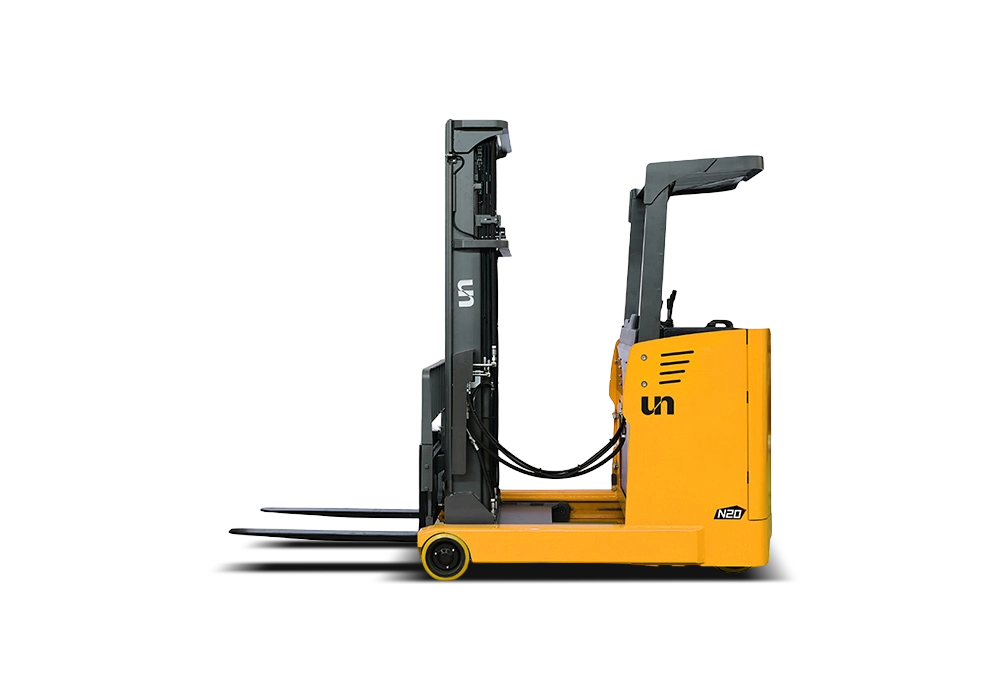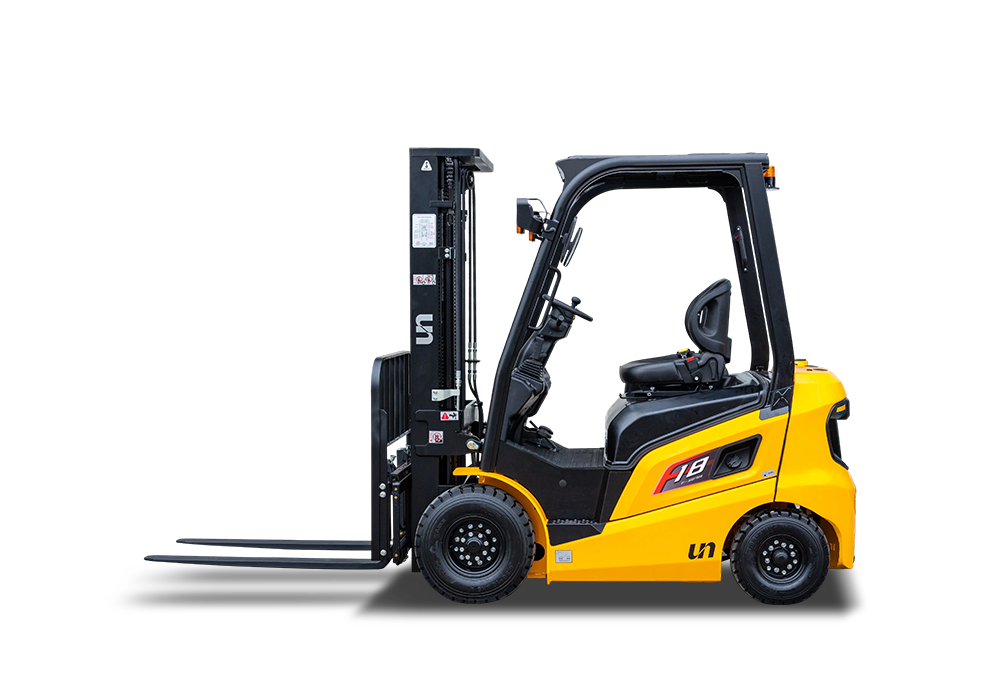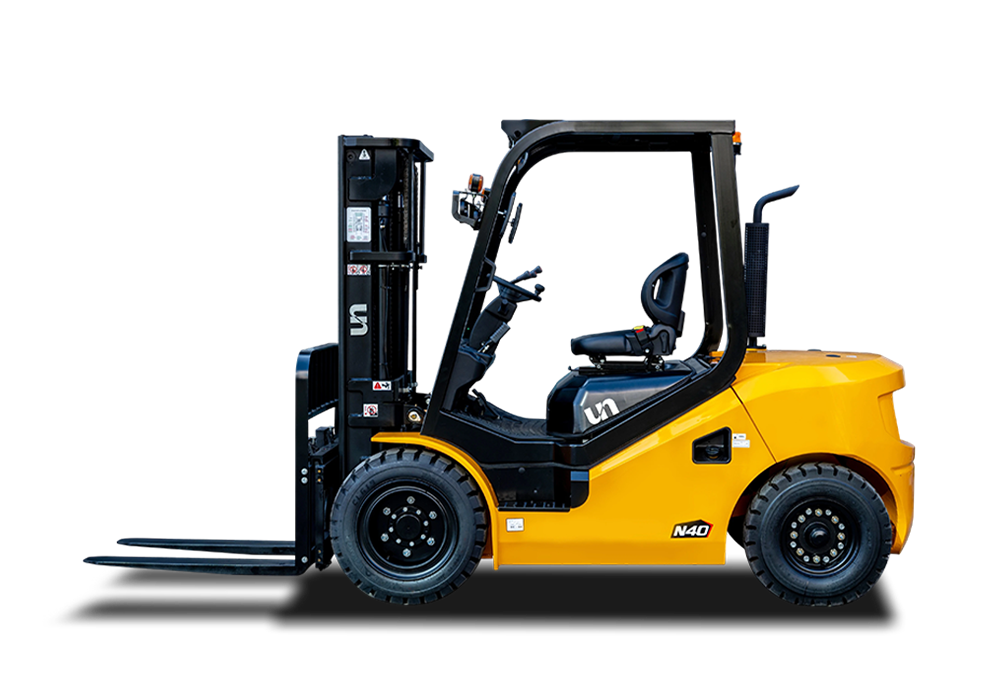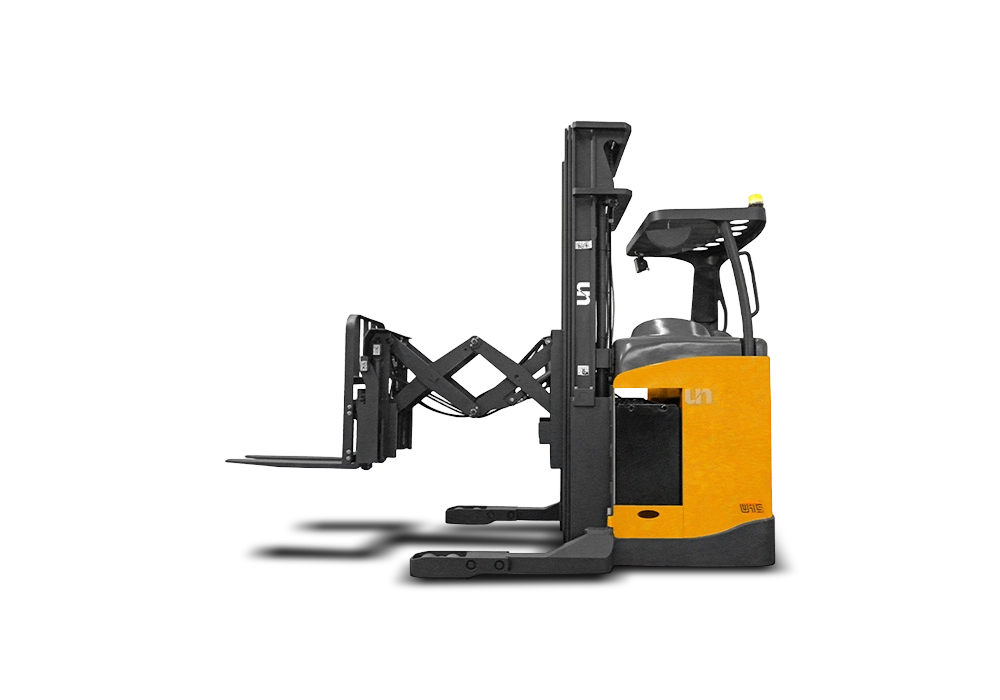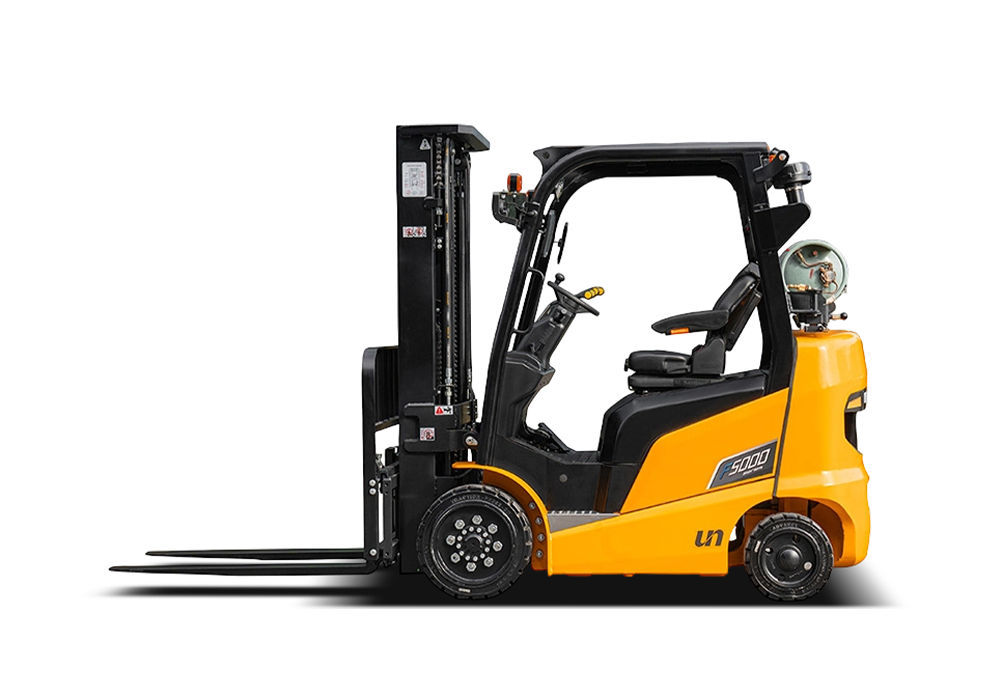Do you understand gas forklifts and diesel forklifts?
Admin 2022-12-19There are two main types of forklifts, diesel forklifts and gas forklifts. When you're in the market for a forklift, you want to make sure you're getting a safe and reliable one. For this, you need to know a few things.
Electric Forklift VS Gas Forklift
The two main options for lifting and handling equipment are gas forklifts and electric forklifts. Each has advantages and disadvantages. Understanding these differences can help you choose the best option for your facility.
One of the great advantages of electric forklifts is that they are environmentally friendly. It reduces the need for fuel and disposal waste. Plus, they make almost no noise. Another important feature is their small size. They are ideal for use in interior spaces such as warehouses or factories.
Electric forklifts also offer more mobility. Their smaller size allows them to fit into smaller areas, making it easier to navigate around and minimize the risk of accidents. This can improve workplace efficiency.
Electric forklifts are available in many different sizes. You can even find electric forklifts designed for refrigeration or food processing. Many of these forklifts are also equipped with a weather resistant exterior.
Gas forklifts have a larger turning radius. However, these forklifts also offer greater lift capacity. Some gas forklifts have a wider variety of parts. Therefore, there are fewer mechanical issues.
Gas forklifts require more frequent refueling, which increases costs. Electric forklifts don't require refueling, but they do require batteries to be charged. Batteries are usually charged at charging stations. If you need to charge your forklift on a regular basis, you need a temperature-controlled and well-ventilated charging station.
One of the main disadvantages of gas forklifts is that they can be noisy. However, they generate far less vibration than other forklifts, which helps reduce operator fatigue.
Electric forklifts have many advantages over gasoline and diesel forklifts. They are also easier to operate, have fewer moving parts, and produce little or no emissions. While they do have a higher initial cost, they are less expensive to maintain in the long run.
Diesel Forklift vs Gas Forklift
Both diesel and gas forklifts are powerful workhorses in the material handling industry. While diesel forklifts are preferred for heavy-duty tasks, gas forklifts are a popular choice for light-duty work. Both types of forklifts can be used in a variety of applications and each has advantages and disadvantages.
Diesel forklifts are generally more affordable than gas forklifts and require less maintenance. However, the costs associated with running a forklift can add up over time. In some cases, higher diesel prices can drive up forklift operating costs.
In addition to the cost of operating a forklift, the type of fuel it uses can also have a major impact on the forklift's ability to perform its tasks. There are several different types of fuel, including gasoline, propane, and electric. The best option for your business will depend on your needs and the environment in which you work.
Gas forklifts are generally more maneuverable than diesel forklifts. They're not too loud either. This makes them ideal for outdoor work as well as indoor use.
Diesel forklifts are more durable and powerful than gas forklifts. Their higher torque and acceleration make them better for towing and carrying heavier loads. However, there are several disadvantages to using diesel. For example, exhaust fumes can be harmful, especially if the forklift is not properly ventilated.
It is generally not recommended to use diesel forklifts indoors. If the forklift is intended to be used indoors, a ventilation system should be installed. It is important to avoid using diesel forklifts inside buildings due to the particulates produced during combustion.
Another downside of diesel forklifts is the need for regular oil changes. On the other hand, propane forklifts require minimal maintenance. When the propane forklift is not in use, it can be stored in a suitable area. Since propane contains no carbon, it is a greener fuel.
Choosing the right forklift is a key consideration for any new business. Not only is it important to make sure the forklift is up to the job, but it is also important to choose the most affordable option.
propane forklift with propane
Propane forklifts are a cleaner, greener alternative to diesel or gasoline forklifts. They are also a good choice for indoor and outdoor use. Whether you're a warehouse manager, manufacturing plant operator, or warehouse equipment manufacturer, propane forklifts are a cost-effective solution.
It's no surprise that propane forklifts are a popular choice. The fuel is clean, and it costs less than gas at the pump. Plus, there are tax benefits that can help keep your costs down.
However, propane forklifts also have some disadvantages. First, there is the potential for noise and emissions. Second, the cylinder needs to be replaced, and third, the fuel needs to be stored in the correct container. Despite these drawbacks, propane forklifts can help your business be more productive.
Another major advantage of propane forklifts is energy efficiency. During the shift, the engine can run at 100% power. This is especially useful for applications that require the forklift to travel long distances.
Plus, it's easier to replace the fuel tank than it is to replace the battery in an electric forklift. With a propane forklift, it only takes a few minutes.
Another advantage of propane forklifts is the ability to operate at higher speeds. Most models can reach speeds of up to 20 mph. These speeds can increase productivity.
Propane forklifts are also cheaper. A typical 33-pound propane tank provides eight hours of full-load run time. Also, refueling is faster.
When choosing between propane and electric forklifts, the best option for your business depends on your specific circumstances. For many applications, electric power is more cost-effective, but for heavy-duty jobs, a propane forklift may be the best choice.
You must weigh the advantages and disadvantages of each method to determine which one is best for your needs. However, if you're looking to increase productivity and make your forklift more environmentally friendly, you should definitely consider a propane forklift. Ultimately, it's up to you to decide what's right for your business.
Liquefied Petroleum Gas (LP) and Compressed Natural Gas (CNG)
Compressed natural gas (CNG) is a clean, environmentally friendly alternative to gasoline. While it's cheaper and safer, it can also be expensive. Depending on local costs, CNG may be more affordable than LPG.
Natural gas has a lower carbon footprint and can reduce carbon monoxide and nitrogen oxides emitted by forklifts. However, the actual reduction depends on duty cycle, relative fuel economy and methane slip. The benefits of switching to CNG will vary depending on the type of vehicle used and the lifecycle emissions of the forklift.
One of the advantages of using CNG is that it offers lower maintenance costs. Unlike gasoline, CNG does not dilute crankcase oil. This can save a lot of money over time. Natural gas-powered forklifts also have less environmental impact than propane-fueled vehicles.
Compressed natural gas forklifts burn faster than other fuels. Still, they make some noise. They also need more fuel. When refueling, the forklift needs to stop for an hour at a time.
On the other hand, LPG forklifts can be equipped with cushion tires. This option is ideal for indoor operation. It is more economical than CNG, but slightly less energy dense than CNG.
Gasoline forklifts are noisier than diesel forklifts. In addition, they emit toxic exhaust fumes. These fumes can be harmful to forklift operators and other workers.
CNG forklifts are also quieter. But diesel forklifts offer better acceleration. Diesel forklifts are usually equipped with pneumatic tires.
In addition to reducing emissions, CNG can also improve air quality. For example, the Napa Wine Valley train has been converted to run on compressed natural gas.
Propane forklifts are widely used on construction sites and warehouses. They are also common in agricultural and culinary applications. However, they are not as safe as compressed natural gas forklifts and are a fire hazard.
If your business needs forklifts but doesn't have a gas station, consider LPG forklifts. Their low initial cost and easy tank replacement make them a good choice.
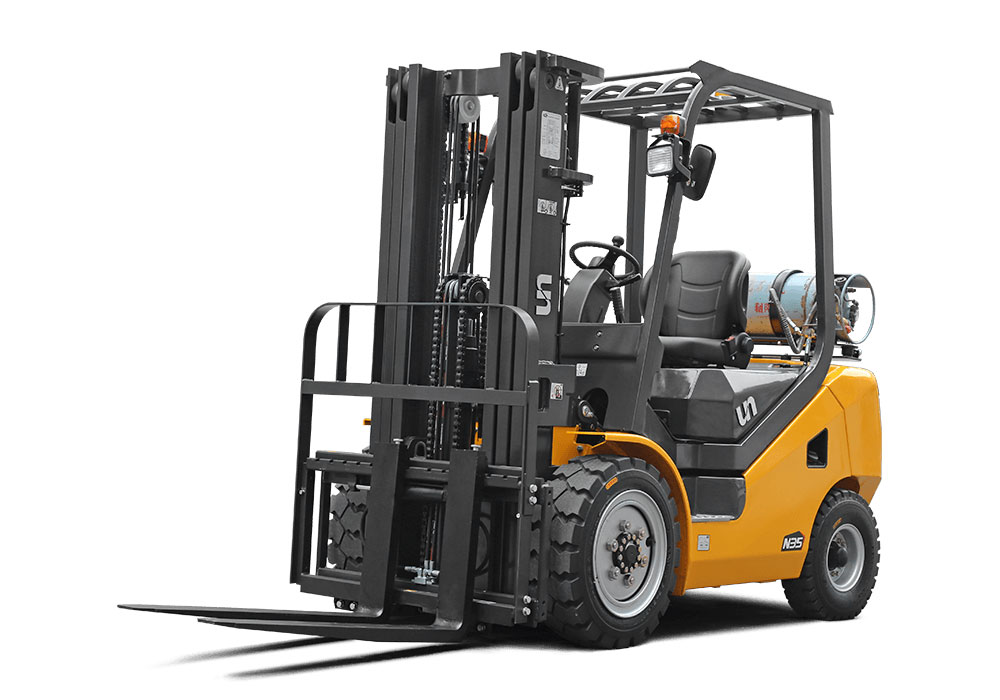

After many years’ improving and upgrading, UN 1.5T-mini 5.0T LPG/Gasoline forklift has become one of the best in China. It adopts leading design, manufacturing technology and reliable power train and hydraulic systems.
All models have been tested by the market that they can be trusted for all industries and get recognition from millions of clients across the worldwide.
PREV: What to look out for and what to avoid when buying a heavy-duty forklift?PREV: What is the advantage of using an electric forklift?
Be the First to Know
For exclusive deals and latest offers, sign up by entering your email address below.
Related products




